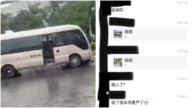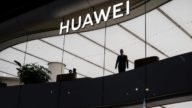【新唐人2014年05月28日讯】美国政府继19号起诉中共军队5名黑客,盗取商业机密和经济情报后,目前正考虑以拒绝签证的方式,阻止中国的黑客参加今年8月举行的两个重量级黑客大会。
5月19号,美国司法部以“网路间谍罪”起诉了中共61398部队5名黑客,控告他们在2006年到2014年间,入侵美国5家公司和一个工会的电脑系统,盗取商业机密和经济情报。
这是美国政府第一次正式指控中共军人从事网路间谍活动。
美国政府一位不具名的高级官员日前透露,美国政府正考虑限制给中国的黑客发放签证,以阻止他们出席今年8月在拉斯维加斯举行的“黑客大会”(Def Con)和“黑帽子大会”(Black Hat)。
英国《路透社》评论文章指出,阻止中国的黑客参加重量级国际黑客大会,是美国遏制中共网路间谍活动广泛努力的一部分。
不过,这两个国际黑客大会的组织者,质疑美国政府采取这项措施的有效性,因为大会的所有讨论都会录像,并在会后公开出售。
旅美中国问题评论人士李善鉴:“这个比较重要的意义是,其实美国在宣示、在强调说这个事情,不是我们提一下,不了了之就完了,这是美国要持续关注的一个问题。”
旅美中国社会问题研究人士张健:“美国政府如果对已知的黑客进行拒绝签证,的确是可以有效的,但我并不认为美国政府可以全方位的、有效杜绝所有的黑客用各种渠道进入美国,因为这个是无法杜绝的,从技术上,各方面难度太大,因为美国政府所讨论的黑客,也只是大量攻击美国黑客的冰山之一角。”
美国《纽约时报》披露,除了遭到起诉的中共61398部队外,美国国家安全局及情报合作伙伴,目前还在调查20多个中共黑客组织,这些组织大多为中共军方单位,它们侵入了美国大量政府机构和公司。
报导说,被西方网路安全圈子称为“上海组”或APT1的中共61398部队,是中国最臭名昭著的从事黑客活动的组织。据美国“麦迪安网路安全公司”发布的报告,61398部队极可能盗取了美国150家公司机构的大量信息,并试图操控美国的关键基础设施。
研究人员乔•斯图尔特透露,截至去年,在他追踪的2万5千个可疑网路域中,“上海组”和“北京组”的一个团队占据了很大一部分。他说,“北京组”使用一个专用的IP地址段,可以追溯到中国国有企业–中国联通在北京的网路。
斯图尔特表示,“上海组”和“北京组”都关注外国公司和政府机关,不过“北京组”也会关注“某些类型的活动人士”,包括藏人和维吾尔人流亡团体。
美国官员透露,位于中国广州的一个私人组织,相信按照中共当局的命令行事。而这个私人组织与美国、英国和俄罗斯的一些防御技术方面的承包商受到袭击有关。袭击目标包括导弹、卫星、空间技术及核动力推进技术等方面的开发商。而最近,这个组织还将攻击范围扩大到律师事务所。律师事务所为客户保管有价值的知识产权,但往往不具备大企业的安全防御能力。
张健:“在中共的授意下,这些黑客大量的盗取美国的营运、商业、高科技的信息,从个人来讲,中共盗取大量的个人信息,对异议人士的打压、维权人士的抓捕,以及对宗教信仰的长期迫害,也会导致这样的问题。所以,美国各界对中共利用黑客的方式来获取他人秘密,是非常担忧的。”
美国《华尔街日报》援引美国官员的话说,如果中共当局不遏制黑客的网路间谍活动,美国政府将考虑采取一系列报复性措施,包括公布那些受到指控的中国黑客进行网路攻击的额外证据,以及对被起诉人士有关联的人员或机构,实施商业和金融制裁。
采访/朱智善 编辑/陈洁 后制/李勇
U.S. Bans Chinese Hackers Attending Conference
Following the indictment of five Chinese military hackers
stealing trade secrets and financial intelligence, Washington is
considering using visa restrictions to prevent Chinese hackers
from attending two international hacker conferences this August.
On May 19, the U.S. Justice Department charged five hackers
from the Chinese military unit 61398 with hacking into five
U.S. companies and a union to steal trade secrets between
2006 and 2014.
This is the first official accusation of the Chinese military
engaging in cyber espionage from the U.S. government.
A senior administration official said Saturday, that Washington
is considering using visa restrictions to prevent Chinese
nationals from attending popular summer hacking conferences,
Def Con and Black Hat, in Las Vegas.
Reuters reported that preventing Chinese nationals from
attending popular summer hacking conferences is part of a
broader effort to curb Chinese cyber espionage.
However, organizers of the two conferences believe limiting
participation from China would have little impact, since
hacking talks from both conferences are videotaped and sold
on DVDs or posted on the web.
Li Shanjia, China issue commentator: “The significance of the
act is to emphasize that the U.S. will continue watching out
for the cyber espionage issue."
Zhang Jian, China social issue researcher: “It will be effective
for the U.S. government to refuse visas to known hackers.
However, it would be hard to conduct comprehensive and
effective measures to eliminate all hackers.
Technically, it will be very difficult.
The hackers the U.S. is tackling now are just the tip of the
iceberg."
New York Times revealed that as well as the indictment
that dealt almost exclusively with Unit 61398, there are also cases
against another roughly 20 Chinese hacking groups that attacked
government agencies and companies.
Some of these hacking groups are associated with the
Communist military.
It is reported that Chinese Army Unit 61398 is now the most
infamous of China’s suspected hacking groups, and the
Western cybersecurity industry variously calls it the
Shanghai Group and APT1.
According to a report by Mandiant, a cybersecurity company,
the 61398 has allegedly stolen massive information from
150 U.S. organizations and tried to manipulate critical
infrastructure in the U.S.
Joe Stewart, a cybersecurity expert, said that as of last year,
the Shanghai Group and the Beijing Group were using 25,000
suspicious online domains he had been tracking.
The Beijing Group, he said, used a dedicated block of I.P.
addresses that could be traced to the Chinese capital and to
the network of China Unicom, one of the three biggest
state-owned Internet telecommunications companies,
reported NY Times.
The targets pursued by the Shanghai Group and the Beijing
Group overlap — both go after foreign corporations and
government agencies, for example — but the Beijing unit also
takes aim at “activist types", Mr. Stewart said, including ethnic
Tibetan and Uighur exile groups.
NY Times reported that officials say one of these privately
contracted groups, based in Guangzhou, China, has been tied
to attacks against defense contractors — including missile,
satellite and space technologies and nuclear propulsion
technology developers — in the United States, Britain and
Russia.
More recently, two officials said that the group has expanded
its targets to include law firms, which hold valuable intellectual
property for their clients but often lack the security defenses of
a larger corporation.
Zhang Jian: “At the CCP’s behest, these hackers have stolen a
large amount of information from the U.S. operations,
commercial, and high-tech.
As for individuals, the CCP steal large amounts of personal
information to enable its suppression and arrest of dissidents,
activists, and people of religions.
That is the reason why the Chinese hackers and the
exploitation of the hackers by the CCP have become of
genuine concern to the U.S. and the general public."
WSJ reported that the Obama administration is considering a
raft of options to confront China more aggressively over
cyberspying, officials say.
Options include exposing evidence of cyberspying from
Chinese hackers, indictment of Chinese nationals and
organizations in U.S. courts and trade sanctions.
Interview/Zhu Zhishan Edit/Chen Jie Post-Production/Li Yong






























